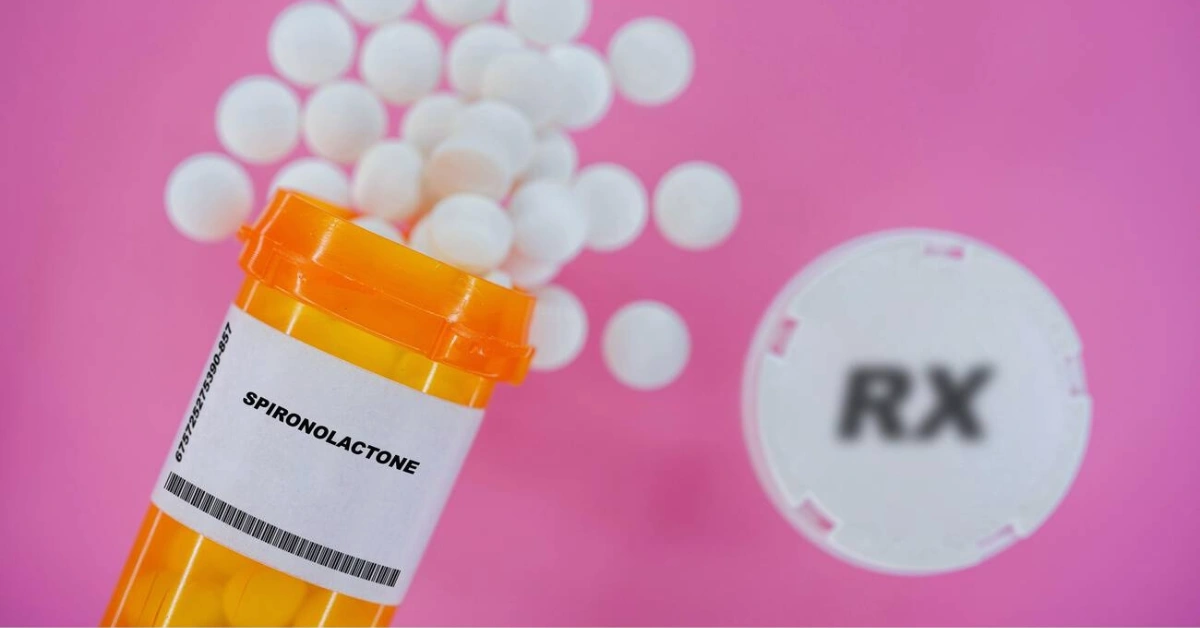Spironolactone, a commonly prescribed medication, plays a crucial role in treating various medical conditions. As a potassium-sparing diuretic, it helps regulate fluid balance and reduce excess fluid retention. However, to ensure its effectiveness and minimize potential side effects, it’s essential to follow a proper diet while taking spironolactone. In this article, we’ll explore the foods to avoid and the importance of dietary considerations when using this medication.
Key Takeaways
- Spironolactone is a potassium-sparing diuretic used to treat conditions like hypertension, heart failure, and hormonal acne.
- Avoiding or limiting certain foods high in potassium is crucial while taking spironolactone to prevent side effects.
- In addition to dietary changes, it’s essential to avoid excessive sun exposure and certain medications while taking spironolactone.
Understanding Spironolactone And Its Uses
Spironolactone belongs to a class of medications known as potassium-sparing diuretics. It works by blocking the action of a hormone called aldosterone, which regulates the balance of water and electrolytes in the body. By inhibiting aldosterone, spironolactone helps reduce excess fluid retention and lowers blood pressure.
Healthcare providers commonly prescribe spironolactone for various medical conditions, including:
- Hypertension (high blood pressure)
- Heart failure
- Hormonal acne
- Edema (fluid retention)
- Hyperaldosteronism (a condition causing excessive aldosterone production)
Spironolactone Dosage
The typical dosage range for spironolactone varies depending on the specific medical condition being treated. It’s crucial to follow the prescribed dosage and not alter it without consulting a healthcare professional. The dosage may be adjusted over time based on individual responses and medical advice.
Common dosage ranges include:
- Hypertension: 25-100 mg per day
- Heart failure: 25-50 mg per day
- Hormonal acne: 50-100 mg per day
Also Read: Foods To Avoid When Taking Sertraline For Optimal Effectiveness
Foods To Avoid While Taking Spironolactone
While taking spironolactone, it’s important to be mindful of your diet and avoid or limit certain foods. Since spironolactone is a potassium-sparing diuretic, it can cause an increase in potassium levels in the body. Consuming foods high in potassium while taking this medication can lead to hyperkalemia, a condition characterized by excessive potassium levels in the blood.
Foods high in potassium that should be avoided or limited include:
- Bananas
- Oranges and orange juice
- Tomatoes and tomato-based products
- Avocados
- Potatoes (especially baked potatoes with skin)
- Spinach and other leafy greens
- Prunes and prune juice
- Raisins and dried fruits
It’s also important to avoid salt substitutes that contain potassium, as they can contribute to elevated potassium levels.
Other Things To Avoid While Taking Spironolactone
In addition to dietary considerations, there are other substances and activities to avoid or use with caution while taking spironolactone.
- Avoid excessive sun exposure: Spironolactone can increase sensitivity to sunlight, making you more prone to sunburn. Use sunscreen with a high SPF and cover exposed skin when outdoors.
- Avoid alcohol: Drinking alcohol while taking spironolactone can increase the risk of side effects and may worsen certain medical conditions.
Be cautious with certain medications: Spironolactone may interact with other medications, such as ACE inhibitors, angiotensin receptor blockers (ARBs), and nonsteroidal anti-inflammatory drugs (NSAIDs). Inform your healthcare provider about all the medications you’re taking to avoid potential interactions.
Side Effects Of Spironolactone
While spironolactone is generally well-tolerated, it’s essential to be aware of potential side effects. Common side effects may include:
- Dizziness or lightheadedness
- Nausea and vomiting
- Diarrhea
- Headache
- Menstrual irregularities in women
- Gynecomastia (breast enlargement in men)
If you experience any severe or persistent side effects, contact your healthcare provider immediately.
Conclusion
Understanding the dietary and lifestyle considerations while taking spironolactone is crucial for maximizing its effectiveness and minimizing potential side effects. By avoiding foods high in potassium, limiting sun exposure, and being cautious with certain medications, you can ensure the safe and successful use of this medication.
Remember to follow your healthcare provider’s instructions and never hesitate to ask questions or raise concerns about your treatment plan. With the right knowledge and precautions, spironolactone can be an effective tool in managing various medical conditions and improving your overall health.
Read More: Foods To Avoid While Taking Sucralfate
FAQs
A: While it’s best to avoid or limit high-potassium fruits like bananas and oranges, you can still enjoy low-potassium options such as apples, berries, and grapes. Consult with a healthcare professional or a registered dietitian for personalized dietary guidance.
A: You should avoid or limit high-potassium foods throughout your entire course of spironolactone treatment. If your dosage changes or you discontinue the medication, consult with your healthcare provider about adjusting your dietary restrictions accordingly.
A: No, it’s important to avoid salt substitutes that contain potassium while taking spironolactone. These substitutes can contribute to elevated potassium levels in the body, potentially leading to side effects. Stick to regular salt in moderation or explore other low-sodium seasoning options.
A: If you accidentally consume a high-potassium food, don’t panic. A single serving is unlikely to cause significant harm. However, if you experience any concerning symptoms, such as muscle weakness, irregular heartbeat, or difficulty breathing, seek medical attention immediately.
References:
- U.S. National Library of Medicine. (2021). Spironolactone. MedlinePlus. https://medlineplus.gov/druginfo/meds/a682627.html
- National Institutes of Health. (2021). Potassium. Office of Dietary Supplements. https://ods.od.nih.gov/factsheets/Potassium-Consumer/

